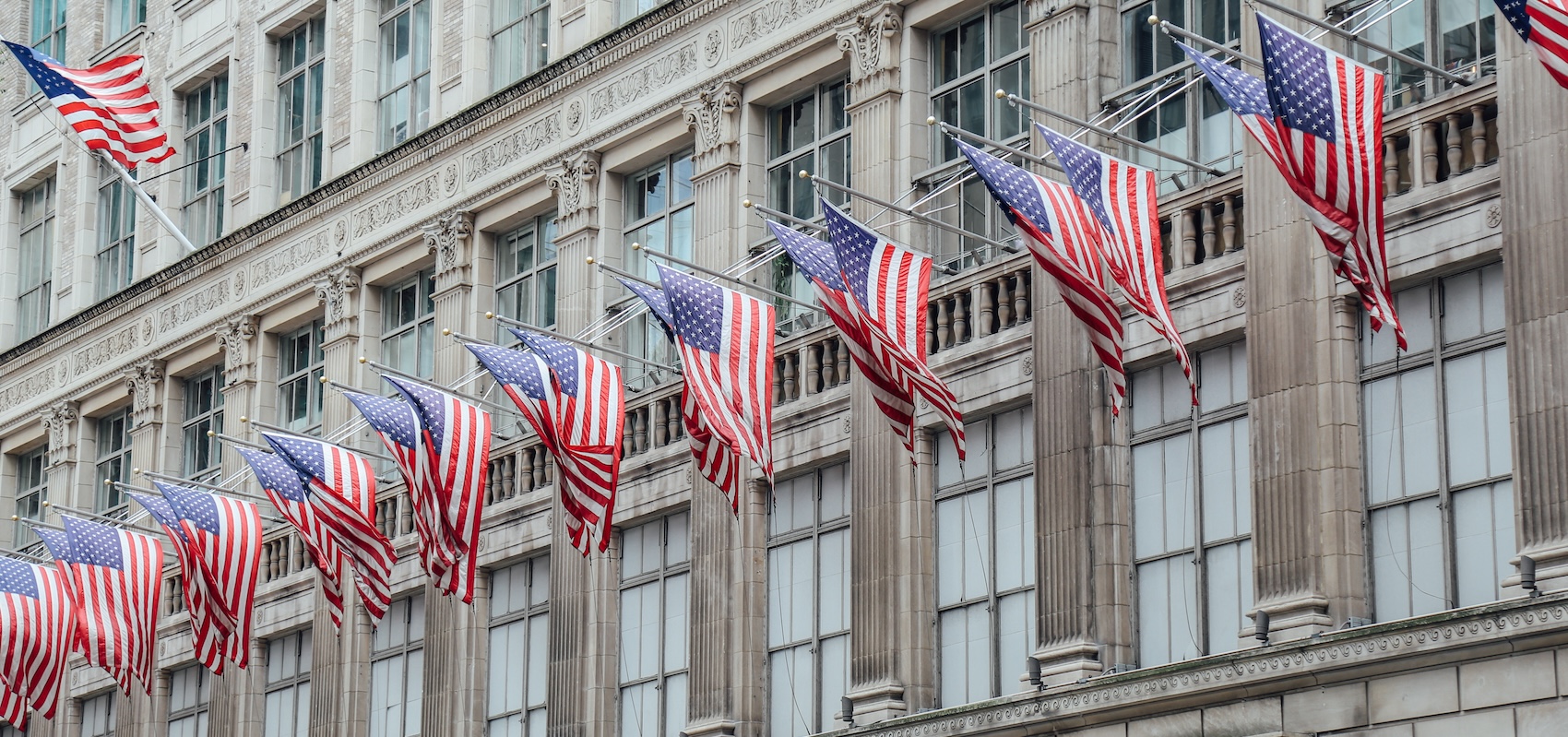
This July Fourth, you may have attended a local parade. If it was anything like mine, you probably saw classic cars, kids on bicycles, emergency vehicles, and the stars and stripes on clothing and flags of all shapes and sizes. Parades like this are a Norman Rockwell-type picture of what patriotism should inspire in all of us: gratitude to, and a willingness to serve, our nation “of the people, by the people, for the people”—a nation of all racial and ethnic heritages, religious traditions, and political beliefs.
But while July Fourth parades endure, many Americans are losing their patriotism. A mere 58 percent are “extremely” or “very” proud of America, the lowest since Gallup began polling in 2001. That decline is certainly related to pessimism about the country’s direction (down to 33 percent), but deeper issues emerge when we look more closely at party affiliation and trends over time.
This year, only 36 percent of Democrats are “extremely” or “very” proud Americans; that number was 62 percent last year. In fact, it hasn’t been this low since the first term of the Trump administration. But during Barack Obama’s presidency, as many as 85 percent of Democrats were “very proud” Americans. Republican numbers are consistently higher, but—especially since the Obama years—there has been a noticeable rise and dip depending on which party holds the White House.
To an extent, it’s to be expected that Americans of either party will be optimistic about our nation when the federal government acts in accordance with their convictions, and pessimistic when it does not. But such dramatic spikes and drops cannot be attributed to reasonable policy disagreement alone. It would seem that, for many Americans, their patriotism depends on whether their party is in power.
Love of country should not rely on such transient authorities. In The Law of Nations (1758), Swiss diplomat Emer de Vattel concluded that one of the most important tasks for political leaders is to encourage citizens to employ their talents for the common good, because active civic and economic participation spurs on our natural love for our homeland. “How can he serve [his country] with zeal, fidelity, or courage, if he has not a real love for it?” Vattel offered an important clarification, however: This patriotic action will only happen in a free society. If a citizen’s love of country must be directed at a single person, it will dry up.
Vattel’s circumstances of imperial rule across Europe were doubtless different from our own, but his point endures: Affection for an individual or party is an unstable foundation for patriotism, which should lead us to act for the good of our fellow citizens. In the American system, patriotism is not inspired by a royal family or powerful executive. Instead, we are proud of our constitutional principles and the freedom to associate with our neighbors in religious congregations, families, schools, and local communities.
While we should pray for and work toward good political leadership, our gratitude for—and to—America should not be contingent on it. Regardless of who is in the White House, Congress, or the governor’s mansion, we should be grateful to our country, and there are many reasons why we should take pride in it.
First is America’s constitutional system, which was designed with an understanding of the inevitable differences of opinion among our fellow citizens about the common good and the best policies to achieve it. As Yuval Levin has recently written in American Covenant, the fact that Americans have meaningful disagreements is not a sign that our system is failing. When that system is properly functioning, it pushes us—and especially our representatives in Washington—toward cooperation. We act patriotically by participating in that system: voting for the best candidates and encouraging policies that seek the common good through constitutional means, which often means cultivating civic friendship with our political opponents.
At many of our top universities, new schools of civic thought are teaching students—conservative, liberal, and in-between—about the habits needed to cooperate in public life. These efforts have proven remarkably successful, and many of these programs find their courses on citizenship and political engagement filled with students from across their universities. There are good reasons to hope that the students will learn that civic friendship must involve not just lip-service to bipartisanship but the hard work of understanding those from different backgrounds and perspectives as legitimate participants in our political process.
Outside of the political process, many of our institutions of civil society have suffered and are in need of renewal and support. Most important among these is our religious communities, which both point us beyond earthly things and give us a framework for understanding how to seek the good within the created order. Our families are the building blocks of society and the most foundational settings where we grow in virtue and service. And there are myriad ways to serve institutions in our communities, which give us many opportunities—indeed, they require us—to cooperate with those with whom we disagree.
It is good to set aside times during the year to be grateful for the blessings of liberty in our nation and consider how we are using our individual freedom to take action to benefit our society, as Vattel encouraged. Our national holidays during the summer—Memorial, Flag, Independence, and Labor Days—serve this purpose well. Despite America’s many difficulties and misunderstandings, our constitutional system is still in place, and we continue to depend on the health of our congregations, families, and communities. Striving to serve within them is one of the most important ways we can love our country.
An Important Civics Lesson, Well Taught
The permanent exhibit in the rotunda of the National Archives in Washington, D.C., includes original copies of…
The Cambrian Implosion
A historical moment ago, it was too obvious for words, but: Life is a blessing. So to…
Undermining the Church’s Public Witness
Bishop Thomas J. Paprocki recently wrote in these pages that the Archdiocese of Chicago’s plan to grant…
